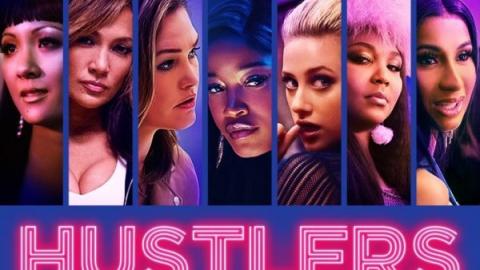Op-Ed: Hollywood is Whitewashed But It Doesn’t Have to Be
Share with friends

A call for diversity in the writers' room!
While Hollywood is rightfully being shamed for sexual harassment cases that are now coming to light, we should also talk about the often ignored white-washing and lack of minority representation as well.
Showrunners, or head writers and executive producers that decide who is hired, along with TV writers, tend to lack diversity. These are roles that shape characters and storylines, and thus are areas where diversity is especially important.
Darnell Hunt, Dean of Social Sciences at UCLA and co-author of the annual Hollywood Diversity Report, has put together a report titled “RACE IN THE WRITERS' ROOM: How Hollywood Whitewashes the Stories that Shape America.” This report tells us that efforts from over 2 decades to diversify TV network writers’ rooms have failed. Turns out Hollywood tends to produce shows that gloss over or overlook racial injustice, stories that all have an major impact on the country at large.
Hunt’s study centered around 1,678 episodes from 234 drama and comedy series on 18 cable, digital, and broadcast platforms during 2016-2017. In total, less than 10% had minority showrunners and only 14% of writers were minorities. Out of the 3,817 writers, less than 5% of them were black. The majority of shows lacked any black writers. And this was similar across all platforms. CBS, the network people watch the most, broadcast 25 scripted shows in the season, and 90% of these had one or no black writers.
An average writer’s room has 9 to 12 writers. HBO, ABC, Netflix, and Comedy Central were the only networks that had multiple shows run by a minority showrunner; they aired shows with 5 or more black writers too (along with Fox and FX).
Hunt’s study sought to see how the racial makeup of writers affected storyline and dealt with racial inequality, particularly looking at depictions of the criminal justice system as well as black culture and families. Hunt uncovered that shows with black showrunners (like FX’s “Atlanta”) or white showrunners with a diverse writer’s room more often recognized the existence of racial inequality, and could see structural racism as the cause instead of shortcomings of black culture. Shows with white writers more often included stereotypical stories and one-dimensional black characters that acted as sidekicks to the main white characters.
Just about all of the crime-drama shows failed to make a note of systematic injustice and racial profiling. Hunt expresses that the biased display of the criminal justice system in Hollywood merges with existing biases in viewers, which weakens public support for legislation that aims to achieve racial equity.
Minority writers are rarely rehired for the next season and commonly viewed as “tokens.” In recent decades, networks have attempted diversity initiatives, but these come out of network budgets (rather than from the show). This can be problematic, especially as showrunners will not hire diverse writers because they know the network will give them someone for free. This also results in diverse writers not being taken seriously.
Hunt explains that while white men occupy top positions in Hollywood, women and people of color will have a hard time attaining equality in the industry. He makes recommendations on how networks can gain more diversity, including a requirement that minorities must be considered during hiring. Hollywood has the power to influence not only the careers of minorities in the entertainment industry, but also the content that people watch and are influenced by. Thus, if Hollywood wants to reshape and repair their own negative image that’s being spread around these days, they need to not only adjust their relationships with women, but also make a greater effort in attaining racial equity.
Read more about this here.




